5 Easy Tips for Growing a Fabulous Indoor Herb Garden
Indoor gardeningYou don’t need a big garden or warm outdoor weather to enjoy fresh, aromatic herbs. An indoor herb garden can thrive year-round, providing you with endless flavor options right at your fingertips. Growing herbs indoors brings several benefits: it’s cost-effective, eco-friendly, and convenient. Plus, you’ll have fresh ingredients for your winter cooking and a touch of green that brightens up any indoor space.

Why an Indoor Herb Garden
There's nothing like the flavor of fresh herbs. They're the all-important ingredient in our favorite recipes like Patty's Bone Broth and Fresh Basil Pesto. While we love our large outdoor garden, with our indoor herb garden, we can have the harvest we need even when it's -2ºF outside.
- Freshness and Flavor - Can't get any fresher flavor.
- Cost-Effective - A packet of seeds is less than one store-bought herb bundle.
- Convenient - Snip fresh herbs anytime, right from the windowsill or kitchen counter.
- Health Benefits - Fresh herbs have medicinal uses as well.
- Natural Ambiance - Enjoy nature's decor.

Best Herbs for Indoor Gardens
These kitchen staples are some of the best indoor herbs to grow indoors:
Thyme - Perfect for savory dishes; thyme grows well in dry soil and low humidity.
Basil - There's no substitute for fresh basil. It's perfect for pasta, pesto, and salads.
Chives - Chives are an easy-to-grow herb with a mild onion flavor. Chop them up and add them to salads and soups.
Rosemary - Fragrant and hardy, rosemary is the perfect winter herb to grow indoors. It's just what you need for great meat dishes and Mediterranean flavor.
Mint - Mint grows quickly and is great for teas, desserts, and cocktails. Be sure to grow it in its own pot due to its spreading nature.
Oregano - An essential for Italian cuisine, oregano grows well with minimal care. This herb can be simmered in your favorite sauces.
Sage - Growing sage indoors will ensure you have this savory herb for those special holiday meals.
Parsley - Rich in vitamins, this is the ideal garnish. Add fresh green to your indoor winter garden.
It's important to start with reliable seeds for indoor growing. Our herb seeds have high germination rates.
Tips for Growing an Indoor Herb Garden
Provide Adequate Light
Once you've got the right seeds, light is the next most important factor for successfully growing herbs inside. If your herbs don't get enough light, they might not survive. Even if they do, they won't thrive. They run the risk of growing spindly and tasteless as they expend all their energy in trying to grow towards the light. For these reasons, light should be your first priority.
Maybe you've got a sunny south-facing windowsill you're planning to use for your herb garden. That's a great start. Unless it gets a full 6-8 hours of strong sunlight, it won't be enough. Don't worry, though. It's easy to provide the light needed.
You don't have to invest in fancy grow lights. Light is light, after all. Cool fluorescent lights placed 6-15 inches away from your plants will be perfect. For every hour of natural sunlight that your plants need, provide about 2 hours of artificial light. That works out to be around 14-16 hours. And don't forget to rotate your plants occasionally so they get even exposure!

Optimal Temperature & Humidity
You should also consider temperature and humidity when creating an indoor herb garden. Herbs grow best around 70ºF.
Don’t dry your plants out by placing them too near a radiator. Keeping your plant pots together can create a little extra humidity, as well as keeping your herb pots on a tray of stones filled with water. This will help your herbs stay lush and tasty.
Water & Drainage
Proper drainage is crucial. One of the most common mistakes indoor gardeners make is overwatering.
Select pots with adequate drainage holes to prevent water from pooling, which can lead to root rot. Clay pots are especially good for indoor herbs. Clay is more porous than plastic so that water and moisture don’t stay trapped, which helps keep the soil from becoming overly saturated.
Know the watering needs for each herb. For example, rosemary prefers its soil to dry out between waterings, whereas basil likes consistently moist (but not waterlogged) soil.
Generally, you only need to water when the potting mix starts to dry out.

Fertilizing Your Herbs
Fertilizing will help your indoor herbs to grow, but be careful not to overdo it. Over-fertilizing an herb is much more damaging than under-fertilizing. A low dose of water-soluble fertilizer no more often than every two weeks should be sufficient. Any more than that, and you risk damaging the flavor profile of your herbs. No one likes tasteless herbs!

Avoiding Pest & Problems
Growing herbs indoors will help you avoid a lot of pests and other problems. Some things to watch out for are aphids and spider mites.
Other problems to watch for are root rot from waterlogged soil and not enough light. Make sure you have good airflow and follow the watering and lighting tips, and you'll avoid those problems.
See how easy it is to grow your own indoor herb garden? Now that you know what herbs you can grow indoors and important tips, with a little practice, you'll soon be a successful gardener. You’ll never go back once you get spoiled on having a sunny taste of zesty herbs at your fingertips year round!
Growing an indoor herb garden offers year-round access to fresh, flavorful ingredients. With the right setup, even small spaces can support vibrant plants, bringing freshness, convenience, and sustainability into your daily routine. Imagine having basil, mint, rosemary, and other aromatic herbs within arm's reach, ready to add a burst of flavor to any dish.
Start your indoor herb garden today with these easy-to-grow herbs and bring a touch of green into your home, even during winter. A sunny, flavorful indoor herb garden is just a few steps away—let's get growing!



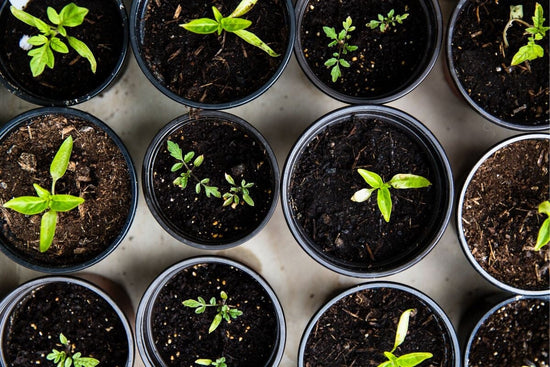
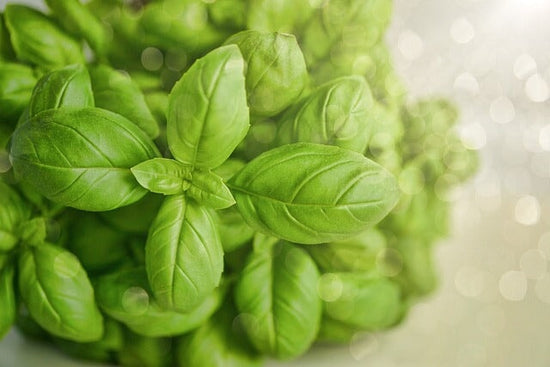

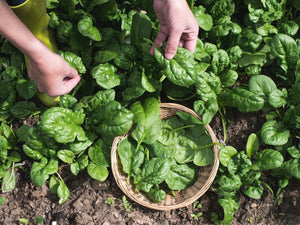
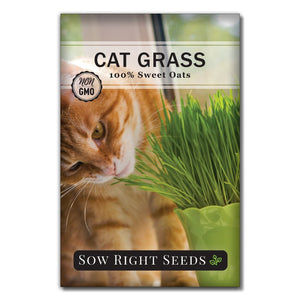
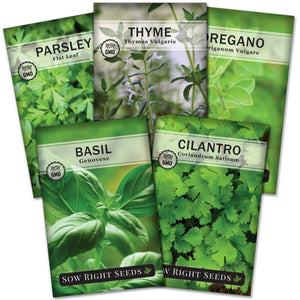

Leave a comment